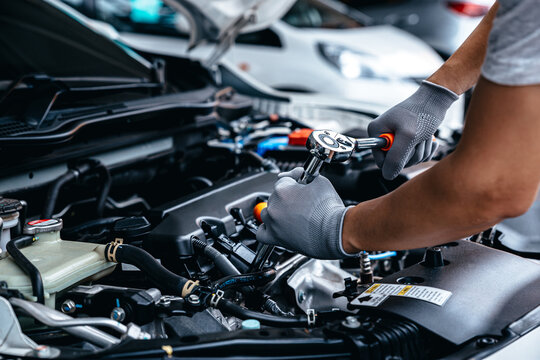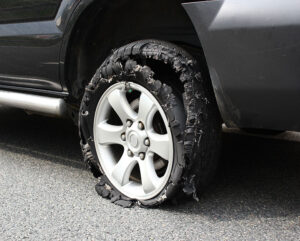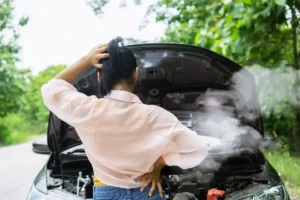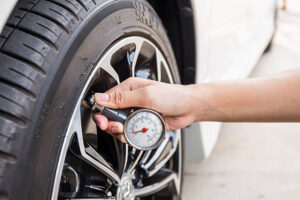Proper car maintenance is crucial for extending the lifespan of your vehicle and avoiding costly repairs. Nigerian drivers often face harsh road conditions, fuel quality issues, and unpredictable traffic, making routine maintenance even more important. By following these essential maintenance tips, you can keep your car in top shape and prevent unnecessary breakdowns.
1. Regular Oil Changes
Engine oil is the lifeblood of your car. It lubricates the engine, prevents overheating, and reduces wear and tear on moving parts. Failing to change your oil regularly can lead to engine damage and expensive repairs.

- When to Change: Every 5,000 to 7,500 km, or as recommended in your car’s manual.
- Best Oil for Nigerian Cars: Synthetic or semi-synthetic oils provide better protection against extreme temperatures.
2. Check and Maintain Fluid Levels
Your car relies on various fluids to function smoothly. Regularly checking and topping up essential fluids can help you avoid major breakdowns.
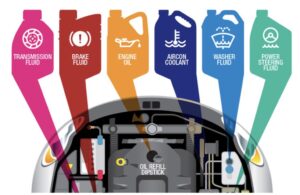
- Transmission Fluid: Ensures smooth gear shifts.
- Coolant: Prevents overheating.
- Brake Fluid: Crucial for effective braking.
- Power Steering Fluid: Ensures easy steering.
- Windshield Washer Fluid: Keeps visibility clear during rainy seasons.
3. Inspect and Replace Air and Fuel Filters
Clogged air and fuel filters reduce engine efficiency and can increase fuel consumption. Replacing these filters periodically enhances performance and prolongs engine life.
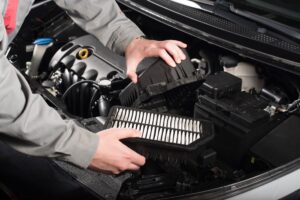
- Air Filter: Change every 15,000-30,000 km.
- Fuel Filter: Replace every 20,000-40,000 km.
4. Keep Your Tires in Check
Properly inflated and well-maintained tires improve fuel efficiency and ensure safe driving. Driving with worn-out or under-inflated tires can lead to blowouts, poor handling, and increased fuel consumption.

- Tire Pressure: Check at least once a month.
- Tread Depth: Replace tires when the tread is below 1.6mm.
- Wheel Alignment and Balancing: Helps prevent uneven wear and improves handling.
5. Pay Attention to Warning Lights
Modern cars come equipped with dashboard warning lights that indicate potential issues. Ignoring these lights can lead to severe damage and expensive repairs.
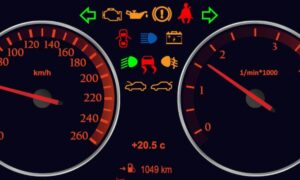
- Check Engine Light: Signals engine trouble.
- Oil Pressure Light: Indicates low oil levels or pressure issues.
- Battery Warning Light: Suggests charging system failure.
- Brake Warning Light: May indicate worn brake pads or low brake fluid.
6. Use High-Quality Fuel and Avoid Bad Fuel
Low-quality or adulterated fuel can damage your engine, clog fuel injectors, and reduce efficiency. Always buy fuel from reputable stations to avoid engine problems.
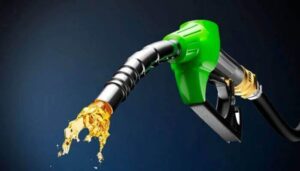
It is a good habit to never have your fuel go below half or quarter of the tank, because the fuel serves as a lubricant, and a coolant for the fuel pump. When the fuel level is too low, the fuel pump can suck up air, and due to friction, heat up, resulting in the grinding of the gears that pump fuel. This leaves you with a bad fuel
- Tip: If your car starts running rough after refueling, have the fuel system checked immediately.
7. Regular Brake Inspections
Your car’s braking system is critical for safety. Worn-out brake pads and faulty brake components can lead to accidents and expensive replacements.
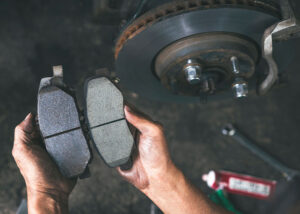
- Brake Pad Replacement: Every 20,000-30,000 km or if you hear squealing noises.
- Brake Fluid Check: Every 20,000 km or if braking feels spongy.
8. Keep Your Battery in Good Condition
A weak or failing battery can leave you stranded. Regularly checking and maintaining your battery will ensure reliable performance.
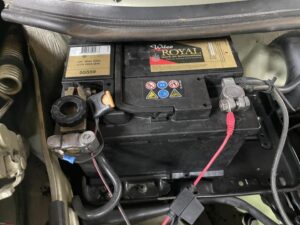
- Battery Lifespan: 2-4 years.
- Cleaning Terminals: Prevents corrosion and improves connectivity.
- Check Charge Levels: If the battery struggles to start the car, test and replace if necessary.
9. Don’t Ignore Strange Noises and Vibrations
Unusual sounds and vibrations often indicate underlying issues that need immediate attention. Addressing these problems early can save you from costly repairs.

- Grinding Noise: Could indicate brake or transmission issues.
- Knocking Sound: May be due to engine problems.
- Excessive Vibrations: Could be due to wheel alignment or suspension issues.
10. Schedule Regular Professional Inspections
Even if your car seems to be running fine, periodic professional inspections can catch potential issues before they become serious. Take your car to a trusted mechanic for a thorough check-up at least once a year.
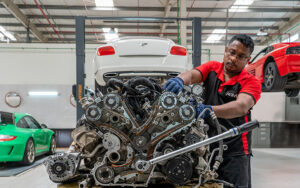
Final Thoughts
By following these car maintenance tips, Nigerian drivers can significantly reduce the risk of costly repairs and ensure their vehicles run efficiently. Preventative maintenance not only saves money but also enhances safety and driving comfort. Keep your car in excellent condition, and it will serve you well for years to come.

